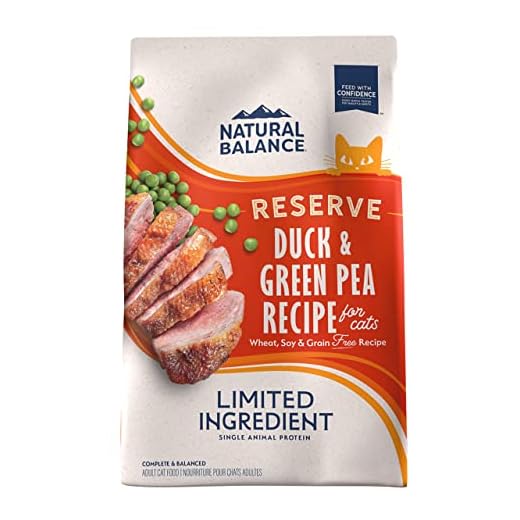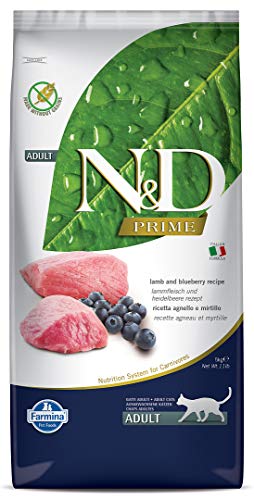



First and foremost, ensuring hydration is crucial. Fresh water must be available at all times, as fluid loss can quickly lead to dehydration. Offering an electrolyte solution formulated for pets can provide additional support.
Next, consider introducing a bland diet. Simple, easily digestible foods like boiled chicken or plain rice can help soothe an upset stomach. Gradually reintroducing regular food after the symptoms improve is recommended.
Monitoring the frequency and consistency of bowel movements is essential. If symptoms persist beyond 24 hours, it’s wise to consult a veterinarian. They can provide tailored advice and determine if further intervention is necessary.
Incorporating probiotics into the diet may also aid in restoring gut health. These beneficial bacteria can help regulate digestion and improve overall well-being.
Lastly, keeping stress levels low is vital. Creating a calm environment and minimizing changes in routine can assist in maintaining digestive stability.
Identifying the Causes of Diarrhea in Cats
Recognizing underlying issues is key for addressing gastrointestinal disturbances. Various factors can contribute to the problem, requiring careful observation and analysis.
Common Triggers
- Dietary Changes: New foods or abrupt shifts in diet can upset the stomach.
- Food Allergies: Sensitivities to specific ingredients may lead to digestive upset.
- Infections: Bacterial, viral, or parasitic infections can cause severe gastrointestinal issues.
- Medications: Certain drugs may have side effects that affect digestion.
- Stress: Environmental changes or emotional stress can provoke digestive problems.
Less Common Causes
- Chronic Conditions: Issues like inflammatory bowel disease require veterinary diagnosis and management.
- Intestinal Obstructions: Foreign objects may block the intestines, leading to serious complications.
- Endocrine Disorders: Conditions like hyperthyroidism can manifest through digestive symptoms.
Monitoring behavior, eating habits, and litter box usage provides valuable insights into potential causes. Detailed notes may assist the veterinarian in diagnosing and treating the issue effectively.
When to Consult a Veterinarian
Immediate veterinary attention is necessary if symptoms persist for more than 24 hours. Signs to watch for include:
- Severe lethargy or weakness
- Vomiting alongside loose stools
- Blood in feces
- Signs of dehydration (excessive thirst, dry gums)
- Loss of appetite lasting over a day
If any of these symptoms are present, don’t hesitate to seek professional help. Rapid intervention can prevent more serious health issues.
Other Considerations
A visit to the vet is also warranted if there are changes in behavior, such as hiding or excessive vocalization. Additionally, if a known underlying condition exists, such as inflammatory bowel disease or kidney issues, prompt consultation is advisable.
In cases of suspected toxin ingestion or sudden dietary changes, immediate veterinary support is critical. Early diagnosis and treatment can significantly improve recovery chances.
Dietary Adjustments for Felines Experiencing Digestive Disturbances
Switching to a bland diet can significantly aid recovery. A mixture of boiled chicken or turkey (without skin and bones) and plain white rice works wonders. Gradually reintroducing the usual diet over a few days is key.
Incorporating a limited ingredient diet, available at pet stores, helps identify food intolerances. These diets contain fewer components, reducing the chance of triggering further issues.
Probiotics serve as excellent supplements. They restore gut flora balance, enhancing digestive health. Many feline-friendly probiotics are available, so choose one specifically formulated for kitties.
Hydration is crucial. Offering fresh water is important, but adding low-sodium chicken broth can encourage fluid intake. Dehydration can complicate matters, so keep a close eye on drinking habits.
Monitoring fiber intake is also essential. A small amount of canned pumpkin (not the spiced pie filling) can provide soluble fiber, aiding in stool firming. Just a teaspoon mixed in food can be effective.
Lastly, consulting with a vet about specialized diets aimed at digestive health can provide tailored solutions. Brands like Hill’s Prescription Diet or Royal Canin offer options designed for sensitive stomachs.
For those traveling with pets, consider the best backpack baby carrier to ensure comfort and accessibility during vet visits or trips.
Hydration Solutions for Dehydrated Felines
Offering fresh water at all times is non-negotiable. Consider using a pet water fountain; the flowing water attracts many furballs, encouraging them to drink more frequently. If regular water isn’t enticing enough, try adding low-sodium chicken or beef broth. This not only increases fluid intake but also adds a bit of flavor that might appeal to a picky eater.
Electrolyte Solutions
Incorporating an electrolyte solution designed for pets can be beneficial. These solutions replace lost minerals and help maintain proper hydration. Ensure it’s specifically formulated for felines, as human alternatives might contain harmful ingredients. Administering this through a syringe can be effective if drinking from a bowl isn’t appealing.
Wet Food as Hydration
Switching to wet food can significantly help with hydration levels. The moisture content in canned food is higher than in dry kibble, aiding in fluid intake. Plus, it might be easier on sensitive stomachs. For added nutrition, consider options like the best food for bombay cats. This can provide essential hydration and nourishment simultaneously.
Medications and Treatments for Feline Gastrointestinal Issues
Metronidazole is a commonly prescribed antibiotic that targets certain bacterial infections and can help restore gut balance. Dosage typically depends on weight, so consulting with a vet for proper measurement is essential.
Probiotics are another option. These friendly bacteria can aid in restoring intestinal flora. Look for products specifically formulated for felines, as they often contain strains beneficial for their digestive systems.
For those experiencing inflammation, sulfasalazine may be recommended. This medication reduces inflammation in the intestines and is particularly useful for inflammatory bowel disease. Regular monitoring during treatment is advisable.
Additionally, anti-diarrheal medications like loperamide can be used cautiously, but only under veterinary guidance. This medication helps slow down gut movement, allowing for more water absorption.
In cases of parasites, dewormers such as fenbendazole or pyrantel pamoate are effective. A fecal exam will determine the presence of parasites, guiding the choice of the appropriate treatment.
For severe dehydration resulting from fluid loss, subcutaneous or intravenous fluids may be administered by a veterinarian. This ensures the body maintains hydration while the digestive system recovers.
Ensure any treatment is closely monitored for side effects, and follow up with the veterinarian if symptoms persist or worsen. Regular veterinary check-ups can help catch any underlying issues early and adjust treatments as necessary.
Home Remedies to Calm Your Cat’s Stomach
Plain boiled chicken, without skin or seasoning, works wonders. This gentle protein source is easy on the tummy and provides essential nutrients. Start with small portions to see how it goes.
Pumpkin puree is another great option. A teaspoon mixed into food can help regulate digestion. Ensure it’s pure pumpkin without added sugar or spices.
Plain yogurt can be beneficial as well. The probiotics found in yogurt help restore healthy gut flora. Just a small spoonful can make a difference.
Introduce a bland diet gradually. Rice or plain pasta can be mixed with protein to settle the stomach. Keep portions small and monitor reactions.
Ginger is a natural remedy. A tiny amount of ginger tea can soothe upset stomachs. Ensure it’s diluted and given in moderation.
Always keep an eye on hydration. Offering small amounts of water frequently helps maintain fluid levels. Ice cubes in the water bowl can make it more appealing.
| Remedy | Benefits |
|---|---|
| Boiled Chicken | Easy to digest, nutritious |
| Pumpkin Puree | Regulates digestion |
| Plain Yogurt | Restores gut flora |
| Bland Diet (Rice/Pasta) | Soothes the stomach |
| Ginger Tea | Calms nausea |
| Hydration (Water/Ice) | Maintains fluid levels |
Always observe how the body responds to any remedy. Adjust accordingly and ensure comfort. If symptoms persist, seeking professional advice is wise.
Preventative Measures to Avoid Future Diarrhea
Consistent feeding schedules play a significant role in maintaining digestive health. Serving meals at the same time daily helps regulate my tummy’s routine.
Quality food is paramount. Opt for high-quality, easily digestible options. Avoid sudden changes in diet; introduce new foods gradually over several days.
Regularly monitor for allergens. Ingredients like dairy or certain grains may not sit well with some felines. Keeping a food diary aids in identifying problematic items.
Stress management is crucial. Creating a calm environment, with safe spaces and engaging activities, supports overall well-being. Avoid sudden changes in surroundings.
Routine veterinary check-ups ensure any underlying health concerns are addressed early. Vaccinations and parasite control are vital for preventing gastrointestinal issues.
Hydration should not be overlooked. Fresh water must always be available, and wet food can help keep fluids in balance.
Physical activity promotes a healthy digestive system. Regular playtime and stimulation keep energy levels balanced and digestion functioning smoothly.









